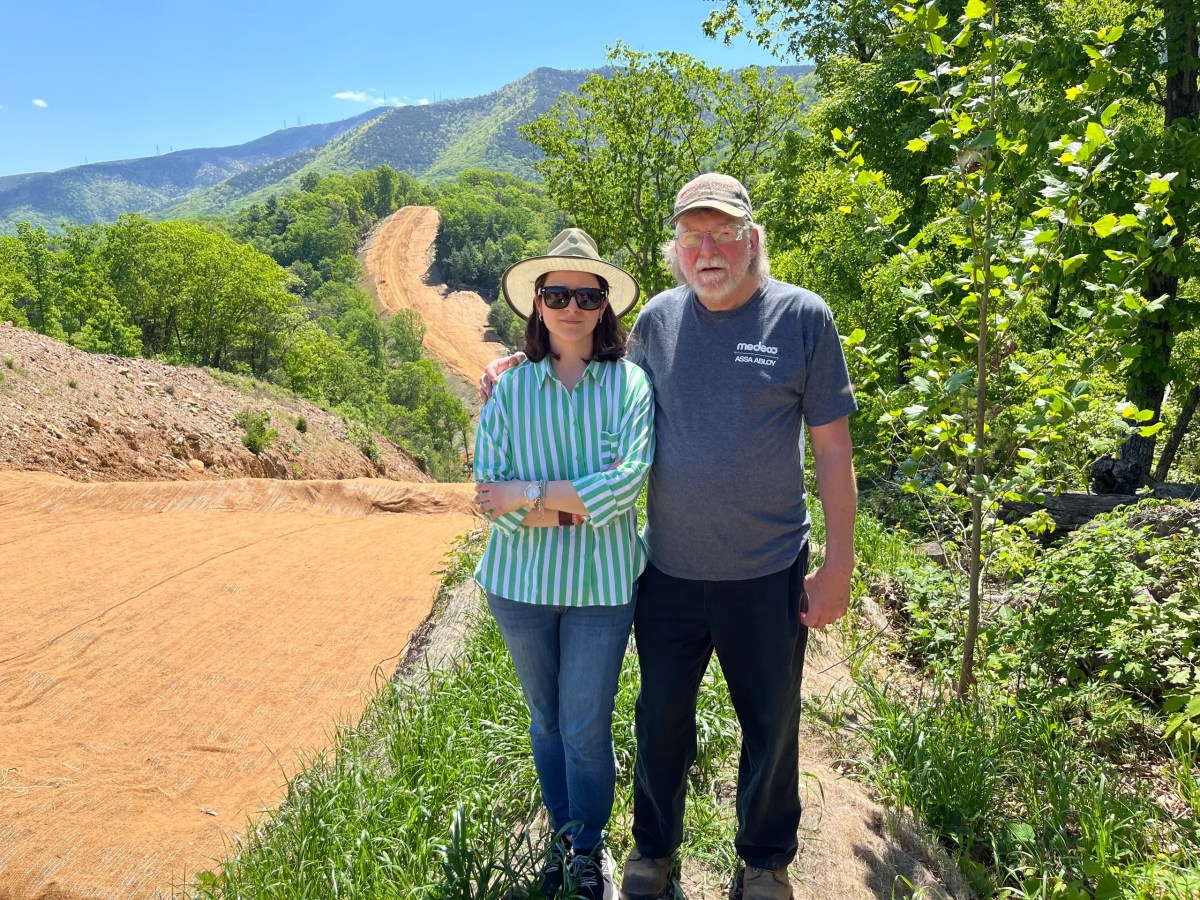The U.S. Supreme Court on Monday said it will not revisit a case involving six Southwest Virginia landowners who claim that the developers of the Mountain Valley Pipeline were unconstitutionally given authority to seize their land.
Since 2020, the six have argued that Congress erred in giving the legislative power of eminent domain to the Federal Energy Regulatory Commission, an agency that oversees interstate pipeline construction. The commission allowed pipeline developers to take private property for the 303-mile natural gas project from West Virginia into southern Virginia, deeming it to be in the public interest.
The case had already come before the Supreme Court once, after the U.S. Court of Appeals for the D.C. Circuit dismissed the landowners’ lawsuit, and in April 2023 the nine justices unanimously sent it back to that appellate court. In February, the D.C. Circuit dismissed the suit again, and now the Supreme Court has declined to take up the landowners’ second appeal.
“A wealthier private party is forcibly seizing land and is doing so with the help of an unelected executive-branch bureaucracy (FERC) that has wielded this unconstitutional legislative power for nearly 100 years,” the landowners’ attorney, Mia Yugo of the Roanoke-based law firm Yugo Collins, said in a statement.
Yugo said that the landowners are “extremely disappointed” but understand that the Supreme Court agrees to hear less than 1% of cases.
She said that the only difference between the previous petition, which the Supreme Court heard, and the latest, which the high court rejected, is that this past summer Congress passed a law that removed the courts’ ability to review government permits necessary for the pipeline’s completion.
“We still maintain that Congress cannot strip the judiciary of the power to review constitutional claims like this one,” Yugo said, calling the law “a royal proclamation from the king attempting to bypass the rule of law governing all others.”
The six landowners in the case are Cletus and Beverly Bohon of Montgomery County, Wendell and Mary Flora of Franklin County, and Aimee and Matt Hamm of Roanoke County. Yugo said they “have been shut out of the courtroom and denied their day in court.”
The D.C. Circuit’s two dismissals centered on its opinion that a lower district court couldn’t hear the landowners’ suit because the court had taken up another related case in 2018 — in other words, the landowners’ suit “came too late,” the D.C. Circuit’s three-judge panel wrote in its dismissal opinion.
But the landowners maintain that the D.C. Circuit failed to address their actual challenge to FERC’s authority to grant eminent domain power to Mountain Valley Pipeline.
“It’s important for the public to know that no court anywhere has ever held that we are wrong on the merits,” Yugo said Monday. “We have not been heard because of an alleged procedural issue. Rest assured, the issue on the merits will arise again.”
Last month, FERC and Mountain Valley Pipeline — both of whom were named as defendants in the original lawsuit — filed notices saying they did not intend to respond to the landowners’ latest petition unless the Supreme Court asked them to.
“Mountain Valley is pleased with the Court’s decision in this case, and we look forward to safely and responsibly placing this critical infrastructure project in-service,” Mountain Valley Pipeline spokesperson Natalie Cox said in a statement Monday.
The $7.85 billion, 42-inch-diameter Mountain Valley Pipeline is designed to transport up to 2 billion cubic feet of natural gas daily from West Virginia through six Virginia counties, ending at a Transco compressor station in Pittsylvania County. After years of delays, developers hope that the project first announced in 2014 will be in service by the end of this month.
Supporters of the pipeline say it will meet demand for natural gas, and their efforts were bolstered this past summer by Congress fast-tracking the project’s completion. Opponents say the pipeline is unnecessary, dangerous and bad for the environment, and for years they have resisted it and its proposed $370 million extension into North Carolina.
While the eminent domain case has been dismissed, the Bohons are waiting for the Richmond-based 4th Circuit U.S. Court of Appeals to hear arguments in a separate but related case focused on how much compensation they are owed for the taking of their Poor Mountain land.
Last week, in a similar case, a three-judge panel of that court upheld a jury’s 2022 verdict that said the Terry family was owed more than $520,000 based on how much value their Bent Mountain property lost due to Mountain Valley Pipeline easements.

